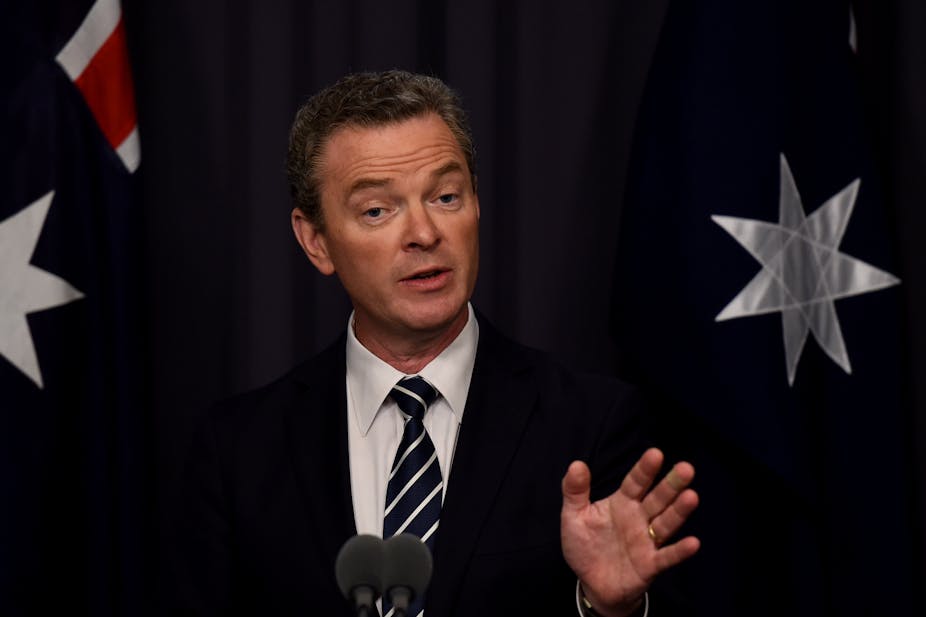On Tuesday night, the Senate voted to block the government’s Higher Education Reform Bill. Despite last-minute negotiations, consensus could not be reached regarding its signature element – fee deregulation.
Education Minister Christopher Pyne views this as a delay rather than a defeat. He has already reintroduced the reforms into the House of Representatives. While there might be political imperatives for moving so quickly, such haste is not conducive to good policy.
It is still unclear how public debt will be affected – and managed – if universities can set their own fees. More importantly, it is also uncertain how HECS-HELP will be sustained – not just for the term of this parliament, but for the foreseeable future. This is just as much a social as an economic problem because if we break HECS, it’s the disadvantaged students who will feel the effects the most.
On introducing the second version of the legislation into the lower house on Wednesday morning, Pyne said the bill would now encompass measures including:
- keeping HECS indexation at the CPI level rather than the proposed 10-year bond rate;
- introducing a five-year “HECS pause” for the primary carer of a new child;
- enhancing the proposed Commonwealth Scholarships scheme to target disadvantaged students; and
- ensuring domestic fees are less than those for international students.
These amendments address some of the concerns raised by Senate crossbenchers. However, particular attention must be given to the sustainability of HECS-HELP. Since HECS was introduced in 1989, the money raised through the reintroduction of student contributions has helped fund the sector’s expansion, radically increasing the supply.
At the same time, the creation of the HECS system has ensured more students – particularly those from disadvantaged backgrounds – are not discouraged from participating and can afford to do so.
Rising fees means rising public debt
This comes at a public cost. Some students are never able to repay their student loan and at this point it becomes public debt. Like the health or welfare system, it’s a red line in the national budget; one that is accepted because of the overwhelming benefit it brings to the nation.
The HECS-HELP scheme is, rightly, a shared national responsibility and we must protect it against any changes that have the potential to undermine it. The government is adamant that, under its proposals, HECS-HELP will be maintained. However, as part of the changes, the government did not clarify how high future debt might rise if universities were able to set their own student fees and the government continued to guarantee a HECS-HELP loan for the full amount.
This increases the risks to taxpayers, and that increases it for students.
Consider that by one estimate, doubtful debt (student debt that will never be repaid) is likely to be as high as A$13 billion by 2017. This is an estimate before fee deregulation, when the government still controls the cost of education to the student and the public. On average this figure will rise, not fall, if fees are deregulated. The question remains, by how much?
A key assumption underpinning fee deregulation is that market forces will create more competition, thus tending to keep prices down and providing better value for students. This relies in great part on the notion of price elasticity or the extent to which price affects consumer behaviour.
Increasing price sensitivity that HECS was meant to reduce
In principle, if a student is required to pay full tuition fees at the point of entry, they will be far more sensitive to price. But the whole point of HECS is to reduce that sensitivity, so that no-one is prevented from attending university on financial grounds. Instead, HECS is meant to encourage students to focus less on the price of education and more on its future benefits.
The degree to which this relative lack of student sensitivity to prices will continue under fee deregulation is unknown. Nor do we know how universities or private providers will react in a competitive market in which the price signal is disguised.
No-one can really be sure how fee deregulation and HECS-HELP will play out together, nor how this will affect students or the taxpayer. This uncertainty should be of great concern to the Senate when the bill is put to a vote again next year.
If fees, on average, don’t rise significantly under fee deregulation then neither should public debt. However, is there any evidence, or modelling, that can be provided to the Senate to support this scenario?
Rising student debt is a problem confronting other countries right now. Student debt in the US exceeds US$1 trillion. In the UK, the Higher Education Commission is worried that three out of four students will never be able to pay off their debts, creating public debt that “is not sustainable”.
The Senate needs to be assured that the government has a long-term strategy for managing student debt. We all need to be reassured. Now is not the time for rushing through legislation; now is the time for the government to pause and reflect.

